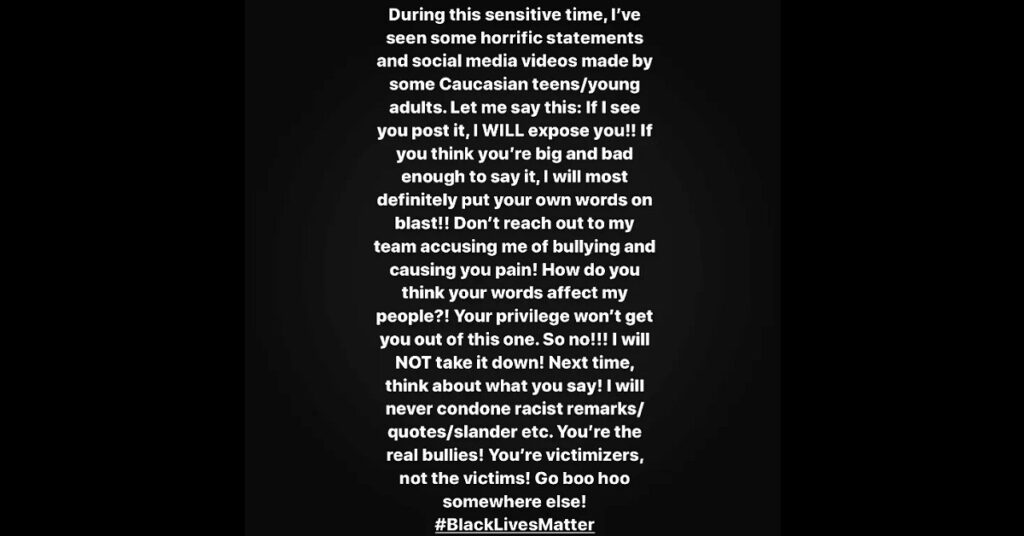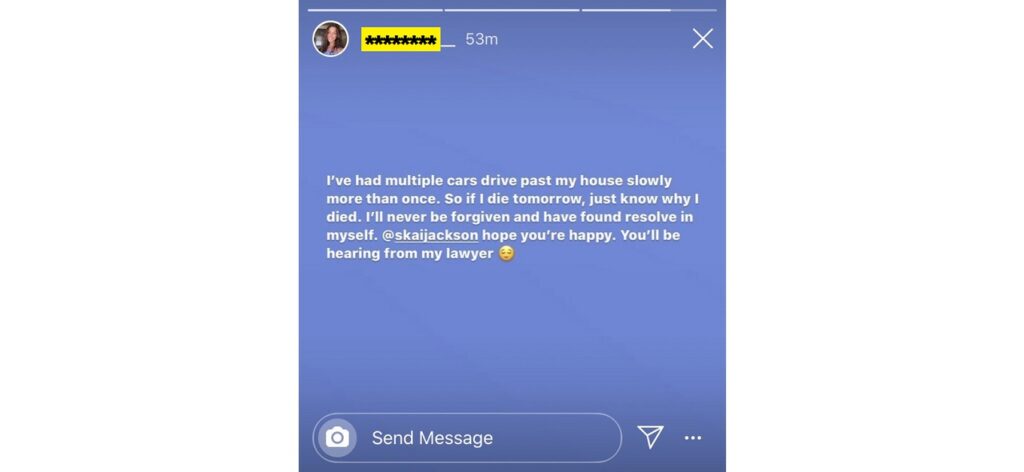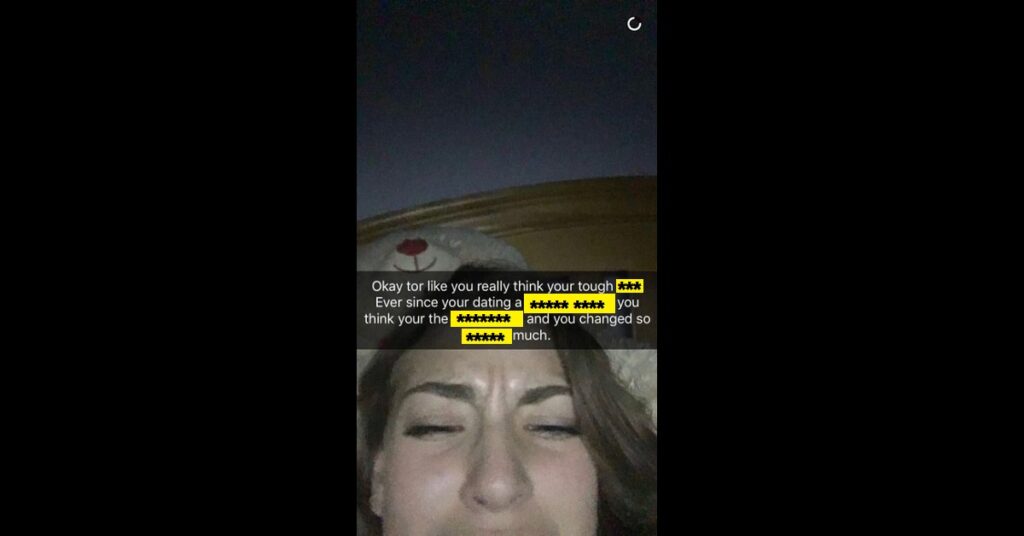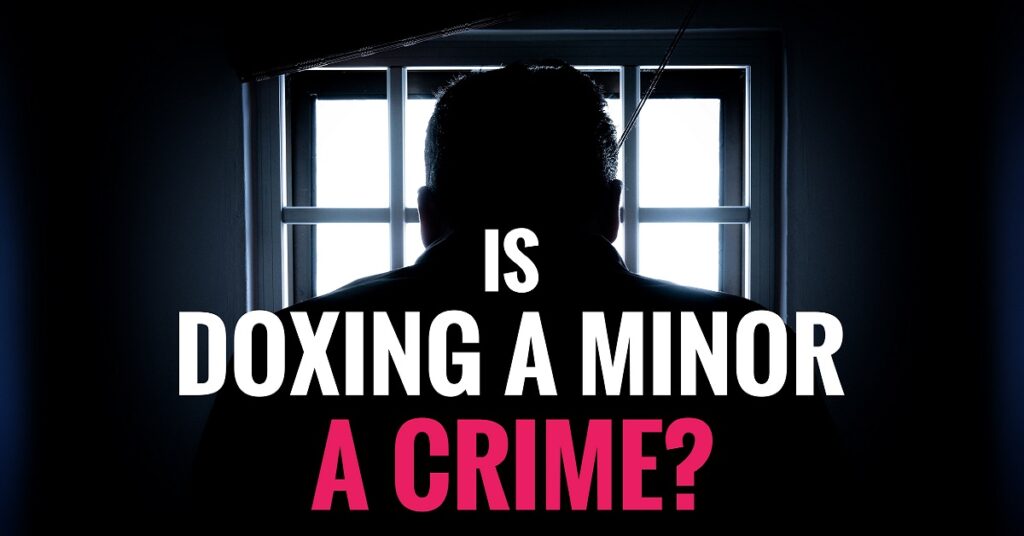Doxing has been around for years but continues to gain popularity. Whether you have been the target or have someone in mind, you may wonder if doxing a minor is illegal. While I have yet to be doxed, I still take precautions. This article will explain when doxing is illegal and what you can do to prevent it.
Doxing a minor is legal. Sharing accurate information about someone over the internet is protected speech. Threats or repetitive contact can be bullying or harassment which are crimes. The age of the victim is only a consideration for the level of punishment.
Table of Contents
What Doxing Means
Doxing someone means publicly releasing personal information about another person. This information is most commonly someone’s name, address, and phone number. The reasons vary, but doxing is seen as an attack usually in retaliation for a perceived wrong.
This means the person releasing the information intends for this act to harm the subject in some way. The level of harm can range from embarrassment to physical harm.
It is called doxing because it is short for ‘dropping’ documents or ‘dox’ for short.
What doxing does to someone is expose their private information in a public setting. An example would be the release of a video game rival’s phone number in hopes of others making prank calls.
How Doxing Works
A real-life doxing example is the actions of forms Disney star Skai Jackson. She released the names of juveniles and the school they attended. She did this because she believed they were racist.
Jackson used Twitter as the public forum where the information spread. She was attempting to act as judge, jury, and executioner without due process. Or allowing people to defend themselves. The targets did not have an audience of people to listen to their response.


Also, people tend to believe the accusations as being true without any proof. As a result, they can lose their job, friends, family, face embarrassment, or even harassment.
Doxing vs Swatting
| Doxing | Swatting |
|---|---|
| Posted through social media | Mostly phone calls |
| Released to public | Contact made with 911 |
| Does not involve the police | Police involvement is key |
| Release of accurate information | False reports are made |
| Contact information released | Fake emergency claimed |
Swatting is loosely related to doxing because both are forms of attacks that can be done online. Both have grown to popularity only within the past decade. Swatting is different from doxing because it involves contacting the police who then act.
Also, the information they provide to the police is untrue and is overly sensational to trigger a large response. In doxing the point is to release true and accurate information.
The information released in doxing is usually the person’s phone number, address, or another way to contact them. The other information doxers release can consist of details on what ‘wrong’ the victim is responsible for. This is the rationale they give as to why they deserve to become a target of doxing.
You can read our article which goes into more detail about swatting here.
Is Doxing Legal?
Doxing is legal. This includes the release of public or general information. This does not include personal information such as financial details, like credit card numbers. It also does not include medical information that has special protection under the law such as through HIPAA.
The reason why some people think doxing is illegal is that it is such an umbrella term for many different types of activities. Also, doxing often occurs along with other activities which are illegal.
For example, you can legally post information about a person. But when you do and direct others to harass them, that call to action is illegal. An example is if you were to post someone’s home address and tell people to go there and cause physical harm. Inciting physical harm is what is illegal as opposed to the posting of the address.
The confusion is where people consider the entire scenario as doxing. Doxing does not have to include a call for violence or other criminal activity.
For example, you can consider it doxing to post on social media someone’s home phone number or address. This information may already be publicly available in the phone book for another directory.
The person making the post is simply calling attention to information and making it more easily accessible.
Is Doxing a Minor Illegal?
Doxing a minor is not a crime. Just as doxing is legal, when the target is a minor, it is still legal.
Who is Considered a Minor?
The classification of a juvenile as a minor varies by location. Typically, a minor is anyone under the age of 21, but in many places, it is 18.
In the United States, they generally deem anyone under the age of 18 as a minor. In the UK, the age is 18, but in Scotland, the age is 16.
Adding another layer of complexity, the age can vary based on the type of offense. For example, it is not uncommon for a state to have laws against anyone under 18 from purchasing cigarettes. Meanwhile, they must be 21 to purchase alcohol or gamble.
What States is Doxing Illegal
While doxing is not illegal, some states have laws such as stalking or cyberstalking that is open to interpretation. Places such as Ohio and California have statutes that are vague. The wording is generic much like the crime of disorderly conduct covers a lot of activity.
These laws may be useful in charging some people who, in addition to doxing, take the act too far. This does not make doxing illegal. These are cases with specific details that do not apply to doxing as a whole.
Doxing vs Harassment
Doxing is the release of information about a person which is typically descriptive and informative. This includes personal information such as someone’s address phone number name and email address.
Harassment meanwhile, has more to do with the actual contact with another person. This can be face to face, over the phone, or over the Internet. The type of contact that makes it harassment and therefore a crime, could be repeated contact.
Also considered harassment would be contacting someone late at night or any communication that is threatening or obscene. Threats would obviously include promises to cause harm to the victim. Obscene material would generally be sexual in nature.
The main link between doxing and harassment despite the major differences is that often doxing is the initial step before harassment begins. Once someone releases the means to communicate to a person, they, or someone else uses that information to commit harassment.
Doxing vs Cyberbullying
All 50 states have laws or policies regarding bullying in a school environment. This protects minors against communication that people often associate with or confuse with doxing.
Posting another student’s schedule of classes, for example, could be doxing. Because you are releasing the document which would be a schedule about the minor. However, posting the schedule along with the invitation or suggestion that the person should be beaten up or otherwise harassed is bullying.
In our other article about Internet trolling, we have a full table that shows what laws are on the books about cyberbullying.
Doxing anyone and taking it too far with hate speech or against a person in a protected class would be illegal. It is not the simple act of doxing that is criminal.
This is when someone is targeted based on characteristics of them that are legally protected. This can include gender, race, sexual orientation, religion, and others. Over the years, this list tends to expand to include more people.
Punishment for Doxing
Since it’s not illegal to dox someone, there is no prison sentence for doxing. When doxing follows purely by the basic definition above, there is no legal punishment by the government.
The only time there are consequences is when the actions go too far and crimes such as harassment, bullying, and cyberbullying occur.
In those cases, throughout my research, I have found many states that do have cyberbullying laws. In all these states, the crimes fall under the grading of misdemeanors. So, doxing someone is not a felony.
The type of misdemeanors varies depending on the state. One state may call it a Class B misdemeanor while another one may call it a third-degree misdemeanor.
Generally, the punishments are typically a small fine averaging $1000 with the potential yet unlikely jail time of up to one year.
Can you Sue for Doxing


Yes, you can sue for being doxxed. There is nothing stopping someone from filing a civil claim. They can do this against anyone for an activity they do not agree with. The number of personal lawsuits dramatically increased in the 21st century.
A large portion of these suits was frivolous in nature. Meaning these people are attempting to involve the government in their disagreements to profit or gain an upper hand.
Some of the claims they may raise can include slander, libel, harassment, and emotional distress. All these typically involve negative information becoming public about a person or a company.
However, it takes a lot of proof to be successful in court. These claims would also have to prove the information was not true. They would also have to show the defendant was aware of this.
Furthermore, this generally does not describe the act of getting doxing. This is because typically the information they release is not specifically negative in nature. It is generally pieces of descriptive information.
Another reason why these lawsuits are unlikely to be successful is the person doxing does not control the actions of others and what they do with this information.
Finally, one consequence of doxing that people often overlook is retaliation. Sometimes when someone is the victim of a doxing attack, other people come to their defense. Then they attack the person who released the information first. The type of attack this person faces in return varies from facing doxing back or harassment.
So, it’s a good idea to remember when doxing someone, you should anticipate that you could be a potential future target.
Why Does Doxing Exist?
Doxing is a thing that has been around since the early 1990s. This time frame corresponds to the increasing popularity of the Internet.
As more people start to connect to the World Wide Web, they interact with it in a way that exposes information about them. Whether they are setting up a social media profile or making a purchase online, they are providing information.
Social media is another major reason why the sharing of personal information is so popular. It has exposed some human traits that make them vulnerable online. One flaw is the need to brag or to gain social acceptance.
Because of these needs, it is common for people to provide information about themselves. This information can include the type of house they can afford to live in or the vehicle they drive.
The final ingredient that makes doxing a thing is the inability of people to get along. With the open communication provided by the Internet, people of different backgrounds are more able to communicate with each other. And based on their differences, this is a prime environment for people to clash.
Add in the fact that people feel a sense of anonymity online. They behave in rude ways they would not dare to in face to face interactions.
An Increasing Trend
The rise in cases of doxing has its parallels with what is termed cancel culture. This is a backlash on anything one finds offensive or unacceptable. And because of this, the instigator feels it is necessary and, in their right, to try to destroy.
They also feel the need to hold people accountable for behavior they disagree with. Also, they wish to expose bad behavior for real-life consequences.
Rarely do people use doxing to merely inform the public of perceived injustice. Rather, they are attempting to get real offline consequences. They may be attempting to negatively affect the target’s employment or even lead to their termination.
If the target is a business, they may want to persuade people to boycott the business and make them lose profit.
Types of people who do it
Hacktivists see this kind of activity as a tactic for people online to use as a form of protest. Hacktivism generally goes much farther than doxing and will generally lead to more criminal activity.
However, doxing is one tool they use in addition to their other methods. As the name implies, these other methods can include hacking and computer intrusion. Once they gain information through these means, they tend to release it publicly to harass or humiliate their enemy.
Doxing has become particularly popular with the younger generation for a few reasons. One is simply because they are more in tune with how to use the information on the Internet for their benefit. They are also more technologically savvy in the ways to obtain this information.
Finally, people under the age of 50 or so generally have more social connections to other people on the Internet. This is because they have grown up with these concepts for most of their lives.
The ability to stay anonymous is one benefit which entices people to behave in antagonistic ways on the Internet. If you read any of my other articles you will quickly come to realize that 100% privacy online is not realistic.
Typical victims


Anyone can fall victim to this kind of activity. You may think that if you do not have social media profiles or post anything about yourself online you may be safe.
However, the only thing that is necessary for a person to face doxing is for another person to have the motivation to do so. If they do, they can easily find information about you offline and then post it themselves on the Internet.
Then we should discuss the reasons why people become a target of doxing in the first place. I have reviewed many cases that have come to the attention of the public through news reports or going viral online. While the motivations vary, there seems to be a common trend.
Reports in the media trigger many people. They feel a sense of disrespect which is a major stressor for many people. However, there are limits to the ways to respond to such situations as there are no laws prohibiting such behavior.
People find they cannot use the law or have any formal address of the showing of disrespect. So their choice tends to be doxing. It is a tool for people who wish to harm others when an alternative solution is not available or favored.
Doxing Ethics
Regardless of any laws or regulations or absence of these doxing is morally wrong in most cases.
I say most and not all because sometimes doxing is merely a warning for others so they can avoid people exhibiting problematic behaviors. Think of it as a Yelp review for people rather than businesses.
For example, if you had a dispute with a member of your community for something minor such as them creating loud noises. You talk to your neighbor but they refuse to compromise creating a sense of disrespect. You call the police but depending on the time of day it may not be against the law.
I would hope that you would find a more reasonable solution, however, it would not be ethically or morally unjustified to share this person’s name and address with community members as a form of warning.
This is just one example but because doxing only includes sharing of information, there are many ways where it can be done properly. Even if the information shared is a complaint about another person that paints them in a negative light.
Who Has Been Doxed
As mentioned above, Skai Jackson is an example of someone who doxxed minors. In return, she was doxxed for her actions. In the attack against her, her address was released publicly.
Also, comedian Ari Shaffir made a video on Twitter that was attacking Kobe Bryant following his death. He alleged Bryant got away with rape because of his celebrity. Therefore, Shaffir was not upset by his death. As a result, Ari’s home address was released.
How to Prevent Doxing
To stop someone from doxing you, delete old social media profiles you do no longer use. For those you use, carefully comb over all your comments and pictures. Put yourself in the shoes of a person trying to dox someone. Look for any detail in your profile you would collect and share if doxing yourself.
Within the last decade, many new internet-based companies are growing due to situations just like this. They search the internet for traces of your information and request its removal on your behalf. This is how some people try to erase traces of themselves from the internet.
Another way to protect yourself from doxing is not to participate in online disputes. You can avoid doxing by limiting the chances someone would find a reason to dox you. The Department of Homeland Security released similar tips but in an easy to share PDF.
What to do If You Have Been Doxed
There are actions you can take if your information is online without your consent. The first action is to notify the person who posted it, Tell them you want it removed immediately. You may naturally assume they will refuse to do so. And you may be right.
But now you will have a record showing they are aware of your disapproval of the information being online. This will only prove your argument stronger against this person when they refuse to remove it.
Who Do I Report Doxing To
As far as making a police report, this could potentially be an avenue you would pursue if only to have the activity documented. You should only expect the police to document the activity in case of future instances or when this becomes a matter of harassment or threats. Instead, it is up to these platforms to police their own sites.
How to Report Doxing
The next step is to contact the administrator who controls the platform on which the information was posted. This could be through their customer service portal. Or it could be a complaint you file directly with a company such as Facebook or Twitter.
You would be reporting that you feel harassed and your safety is in danger. And you will be asking for its removal. You could also request that the account of the person who posted the information is reviewed to ensure they are acting within the scope of this site’s policies.
If they are not, that information and their account may be completely removed which would resolve your conflict.
More Responses to Getting Doxxed
Finally, keep in mind that once information, like pictures, is put on the Internet it will likely stay there forever. The data can be removed from the original location it was posted such as a person’s profile.
However, once other people view this information, it increases the chances other people have copied and saved it to their own computers. Therefore, with more people having access to this information, the chances of it resurfacing are that much greater.
The best thing you can do is to continue to perform search engine requests about yourself to see what you can find and address the results one by one.
Conclusion
- Be careful sharing information online
- Google yourself to see what others can find
- Erase old profiles and contact websites/hosts for removal
- Do not engage in online disputes
Doxing a minor in its pure sense is legal. However, it can be used to commit other acts already defined as illegal. Harassing or cyberbullying someone by doxing them is a misdemeanor in some states.
I recommend you Google yourself. See what results appear. Look for any information such as your name, email, or home address. Make sure any information you see will not make you vulnerable. Even in the event that someone brings attention to it. If there is, contact the owner of the site and request its removal.
Information obtained when someone is doxed can be used in swatting. To learn more about swatting, I wrote an article about Swatting on the live-streaming platform Twitch.

